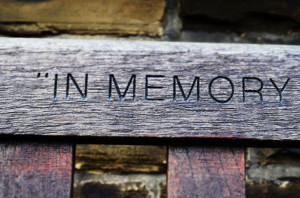The genre of life writing is so broad, it can be difficult to identify what falls within this category and where the boundaries of the genre lie. And once you are clear of the boundaries, the genre itself can be fraught with difficulties.
 Life writing relies on memory, either recalled memory or events recorded, to form the basis of the writing. But how reliable is memory? Take a public event: let’s say a fight in a crowded street, for instance. If there were 20 witnesses to the fight, there will be 20 different version of what occurred. Yes, there will be a consensus that a fight did indeed take place – blows were exchanged, but the differences in each version will range from subtle to vast.
Life writing relies on memory, either recalled memory or events recorded, to form the basis of the writing. But how reliable is memory? Take a public event: let’s say a fight in a crowded street, for instance. If there were 20 witnesses to the fight, there will be 20 different version of what occurred. Yes, there will be a consensus that a fight did indeed take place – blows were exchanged, but the differences in each version will range from subtle to vast.
You can try this yourself: think of your own personal memories – how much of these are true memory, how much are they memories of memories (ie: memories you have recalled so many times that you can no longer remember if you are accurately remembering an event or the recollection of the event); or how much of your memories are the memories of others (ie: you have been told about an event in your life so often by others, possibly your parent(s) or sibling(s), that you have taken their memories as your own)?
At what point does a memory become a fiction? And where are the boundaries of the genre? Consider the following:
- Autobiographies that focus, for example, on an interest in a particular celebrity can become both autobiography and biography simultaneously.
- Does an autobiography where the subject is given a different name to the author, but where they are definitely one and the same person, stop being an autobiography?
- At what point does a travel narrative become both travel writing and memoir?
- Can a ghostwritten autobiography, still be called an autobiography?
- When a memoir changes the names of all involved and relies on the subjective memory of the author, does this become a fictional novel?
- Why would a writer ‘play around’ with the conventions of life writing?
- What are the boundaries of life writing?
- At what point does life writing become something else altogether?
When I talk about life writing, I mainly refer to autobiography and biography, but it is also worth considering the difference between these and memoir. I don’t have any right or wrong answers to the above questions – this is an investigation. Certainly it is an invesitgation worth devling if you are interested in life writing. I am particularly interested in written life stories, but this discussion applies to all forms.
How would you answer these questions? What are the implications for your own writing? I would love to hear your thoughts.
Photo credit: In Memory



